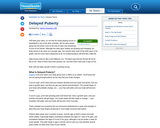
Students learn about delayed puberty including causes of delayed puberty, what doctors can do, and how to deal with it.
- Provider:
- KidsHealth
- Author:
- The Nemours Foundation
- Date Added:
- 06/24/2019

Students learn about delayed puberty including causes of delayed puberty, what doctors can do, and how to deal with it.

The following guide offers discussion questions and activities that will help your students learn what depression is, how to recognize its signs, and what to do about it.

Students will understand what diabetes is, how to treat it, and why it's important to control it.Kids all over the world deal with diabetes each day "” checking their blood sugar levels, following a healthy eating plan, and even giving themselves insulin.

Students learn about what causes blood sugar levels to be out of control and how to keep them under control.

Students learn how to deal with feelings when it comes to diabetes including how to talk to others.
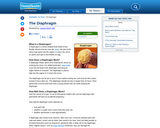
Students learn about the diaphragm including how it works and the possible side effects.
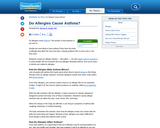
Students learn about the relationship between allergies and asthma.

Students learn about identifying and dealing with strangers. Do you know how to be street smart? Being street smart means knowing how to keep yourself safe from strangers when you're alone or with other kids. Whether you're walking to school or to the bus, hanging out on the playground, or riding your bike in your neighborhood, being street smart helps you stay safe. When you're street smart, you know your way around, you know how handle yourself in tough situations, and you're able to "read" people.

This activity helps students understand online safety.

Teens begin using drugs for many reasons to fit in, to escape their problems, to get attention, or simply because they're curious. Whatever the reason, it's imperative that teens know the facts about drugs so they can understand the risks. The questions and activities in this guide will help your students learn what drugs do to the body and mind, the dangers of using drugs, and how they can handle pressure to use drugs.
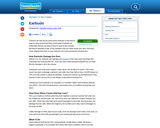
Students learn about earbuds including how they damage your ears causing hearing loss and how to use them the correct way.Chances are all you know about earbuds is that they're easy to carry around and they sound good. Earbuds are useful little devices as long as they're used at low volumes. But they're basically a pair of tiny speakers that you wear inside your ears. And loud music playing that close to your eardrum can cause permanent hearing loss.
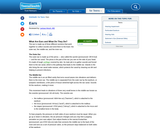
Students learn the basic anatomy of the ear, as well as, how to protect your ears. Knowing how your ears work and what things can affect them will help you better understand your amazing ears and the job they do.
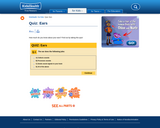
This resource is a short quiz for students to test their knowledge of the ears.

Teens get a lot of information about eating disorders, but sometimes that information comes through the same media outlets that venerate the thinnest models and actors and the latest fad diets. It will benefit your students to understand the real psychological and physical details of eating disorders as well as the roles that friends, family, school, the media, and society may play.
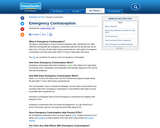
Students learn about emergency contraception including how it works and possible side effects, as well as, protection against STDs.
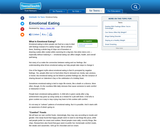
Students learn about emotional eating including physical hunger vs. emotional hunger and tips to break the cycle.
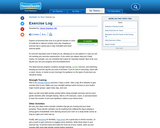
Students learn information on strength training and other activities students can do to stay active, as well as, as an exercise log and questions to help them reflect on their progress.
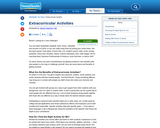
Students learn the benefits of extracurricular activities and how to find the right activity.
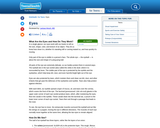
Students learn the basics about eyes and things that can go wrong with the eyes and vision.

Students learn about puberty and the changes that take place with the body during puberty.